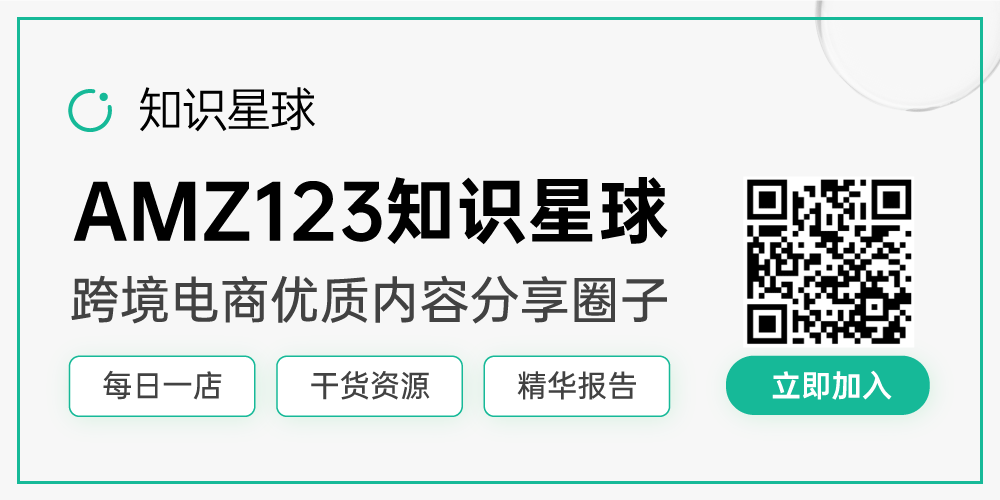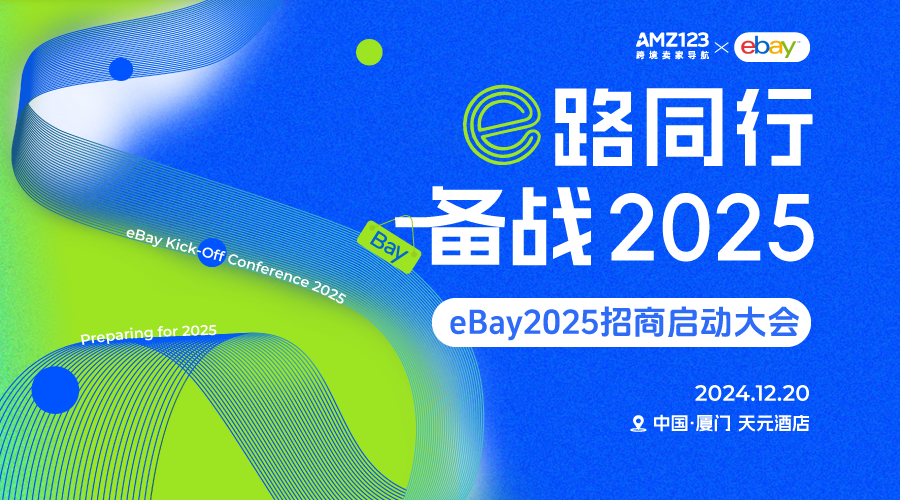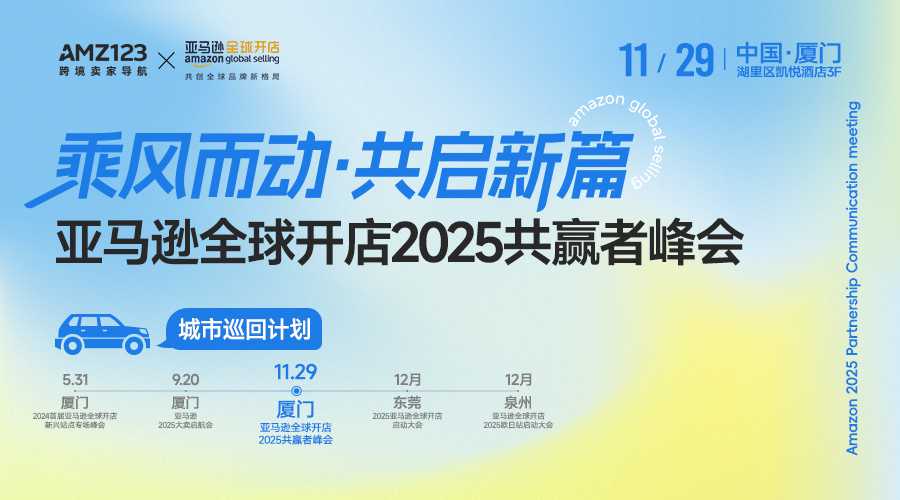又又又更新啦!SEO排名算法新解读

初阶成长
跨境电商入门到精通

做亚马逊的人都知道,想要提高产品的转换拉动营业额,就需要运用适合的SEO策略来获得搜索结果的上位排名。亚马逊站内SEO可以理解为在亚马逊站内进行关键词搜索时,使产品获得更上位的自然排名而进行的优化过程。
不知道大家发现没有,近期,亚马逊SEO排名算法又更新了。为了帮助大家获得更好的有机排名,侃妹从外网上扒了一篇评分较高的关于测试亚马逊搜索引擎和关键字优化的文章,下面侃妹就将文章发布出来,给各位卖家朋友一个参考。
(不要慌~后面有中文翻译的哦)
In our last Amazon SEO update, we discovered that different keyword fields of Amazon listings (title, backend, bullets, description) are no longer weighted differently in terms of their effect on ranking.
This time around, we tested:
1.Keyword set combinations for parent/child variations
2.Recognition of keyword variations such as accents, misspellings, and plurals
3.The impact of keyword repetition, keyword distance and phrase match
Disclaimer: Despite extensive and comprehensive testing, individual products or categories might vary in their ranking behavior. There may also be differences between newly created and existing products.
In order to test the ranking effects of the different factors, we set up a set of products across different categories on Amazon. Our test products differed only in the parameter we wanted to test, e.g. spelling of ‘ä’ versus ‘ae’. After running multiple test searches, we examined the results for common patterns.
Here is what we found.
在最近一次的Amazon SEO更新中,我们发现Amazon列表的不同关键字字段(标题、后端、项目符号、描述)对排名的影响不再不同。
我们主要对以下三项进行了测试:
1.父/子变体的关键词组合
2.识别关键字的变化,如重音、拼写错误和复数形式
3.关键字重复,关键字距离和短语匹配的影响
(免责声明:尽管进行了广泛而全面的测试,但个别产品或类别的排名行为可能会有所不同,新创建的产品和现有产品之间也可能存在差异。)
为了测试不同因素的排名效果,我们在亚马逊上设置了一组不同类别的产品。我们的测试产品仅在我们想要测试的参数上有所不同,例如'ä'与'ae'的拼写。下面是我们运行多个测试搜索之后得出的结果。
1. Do I have to add keywords to every child ASIN or is the parent/one child product listing enough?
Parent and child ASINs are inextricably linked – but does that also extend to their keywords? We did the test to answer the following questions:
oDo I have to add keywords to each individual parent/child listing to rank?
oCan I use different keyword sets across children to increase the number of indexed keywords?
oAre there any benefits in using specific keyword sets for each ASIN to get the most relevant to rank first?
The results of our tests showed the following:
oParent product listings do not appear in search results. Depending on the product category, child ASINs will appear with their own title (e.g. Beauty and Home) or with the parent title (e.g. Apparel and Sport).
oSearching for keywords only included in the parent listing ranks a child ASIN. Which one probably depends on success factors such as sales and CTR.
oSearching for keywords only included in the child listing ranks that specific child ASIN. A keyword in one child listing has no effect on the ranking of another child product from the same family.
oIf multiple child ASINs contain a keyword, in some cases only the bestseller ASIN will rank, in other cases several child ASINs containing the keyword will rank
oChild listings are automatically updated with the bullet points, description and backend keywords of the parent listing.
What does this mean for me?
There are two strategies crystallizing from these findings:
Strategy 1: The faster the better
oSearch relevant product keywords using the Sellics Keyword Search tool or Sonar
oOptimize the parent product listing
oThe optimized listing will rank for all relevant keywords that apply to all child ASINs.
Strategy 2: Maximum Amazon SEO optimization
oMake use of the increased space that child product listings offer, thereby increasing the number of indexed keywords.
oSearch relevant product keywords using the Sellics Keyword Search tool or Sonar
oInclude the most important keywords in all your parent and child listings
oMatch attribute keywords such as colour and size with the relevant child listing
oSpread the remaining keywords (especially longtail keywords) from your list across all other child listings
oYour best-seller will appear for the most relevant keywords, while you are still covering less relevant keywords with the other child ASINs. This is especially useful when people search for specific sizes or colours.
1. 我必须为每个子产品的ASIN添加关键字吗?或者父/子产品列表是否足够?
父类和子类ASIN有着千丝万缕的联系,但这也会扩展到他们的关键词吗?
我们做了测试来回答以下问题:
o我必须为每个单独的父/子列表添加关键字来排序吗?
o我可以在子节点之间使用不同的关键字集,以增加索引关键字的数量吗?
o为每个ASIN使用特定关键字集以获得最相关的排名是有任何好处吗?
我们的测试结果显示如下:
o父产品列表不会出现在搜索结果中。根据产品类别的不同,子ASINs将显示自己的标题(如Beauty and Home)或父类标题(如Apparel and Sport)。
o搜索仅包含在父列表中的关键字将对子ASIN进行排序。
o搜索仅包含在子列表中的关键字将对特定子ASIN进行排名。一个子列表中的关键字对来自同一系列的另一个子产品的排名没有影响。
o如果多个子ASIN包含关键字,在某些情况下只有畅销品ASIN会排名,在其他情况下,包含该关键字的几个子ASIN将排名。
o子列表会自动更新父列表的项目符号、描述和后端关键字。
那这对我们来说意味着什么呢?
从这些发现中可以看出两种策略:
策略1:越快越好
o使用Sellics关键字搜索工具或Sonar搜索相关的产品关键字
o优化父产品列表
o优化后的列表将对适用于所有子ASINs的所有相关关键字进行排序。
策略2:最大亚马逊SEO优化
o利用子产品列表提供的增加的空间,从而增加索引关键字的数量。
o使用Sellics关键字搜索工具或Sonar搜索相关的产品关键字。
o在所有父级和子级列表中包含最重要的关键字。
o使用相关子列表匹配颜色和大小等属性关键字。
o将列表中剩余的关键字(尤其是长尾关键字)扩展到所有其他子列表中。
o当你仍然在使用其他子ASIN覆盖不太相关的关键字,你的best-seller会显示最相关的关键字。当人们搜索特定尺寸或颜色时,这是很有用的。
2. Which keyword variations does/doesn’t Amazon recognize?
Imagine you would have to take all spelling variations (including the spelling mistakes people commonly make) into your product listing…the content would be really tough to read! In order to find out which variation you have to include and which one you can ignore, we tested for:
oUmlaute
oAccents
oMisspellings
oSingular and Plural
oCompound words
oHyphens
The results of our tests showed the following:
oUmlaute (ü, ä, ö) are matched to ue, ae, oe
oAccents (entrecôte, roségold, mèches) are matched to the non-accent spelling (entrecote, rosegold, meches)
oMinor misspelling (carreirbag, runnign shoe, laether wallet) are matched to the same as proper spelling
oSingular and plural are treated the same, except for long compound words in German (e.g. Mehrzweckregal, Fitnessarmbänder, Klapplaufband)
oDifferent spellings of a compound words (fittnessball vs fitness ball, flipchart vs. flip chart) are not indexed automatically
oAmazon reads listing keywords with hyphens as the two separate keywords as well as the compound word
What does this mean for me?
Good news: you do not have to include all possible variations in your product listing (and think about all the weird ways people might spell your product’s name). Amazon recognizes these variations automatically.
However, what you do need to include are singular and plural for long compound words (what the German language is known for) as well as different spellings of compound words. We also recommend making use of hyphens were applicable as they cover all possible keyword variations.
2. Amazon识别/不识别哪些关键字变体?
将所有拼写变化(包括人们通常所犯的拼写错误)纳入您的产品列表是非常可怕的,为了找出哪些变体你必须包含在产品列表中和哪些可以忽略,我们测试了:
o元音
o重音
o拼写错误
o单数和复数
o复合词
o连字符
我们的测试结果显示如下:
o元音(ü,ä,ö)与ue,ae,oe相匹配
o重音(entrecôte,roségold,mèches)与非重音拼写(entrecote,rosegold,meches)相匹配
o细微拼写错误(carreirbag,runnign shoe,laether wallet)与正确的拼写相匹配
o对于德语中的长复合词(例如Mehrzweckregal,Fitnessarmbänder,Klapplaufband),除了复数和单数之外,它们的处理方式相同
o复合词的其他拼写(fittnessball vs fitness ball, flipchart vs flipchart)不会自动编入索引
oAmazon读取包含连字符的关键字作为两个单独的关键字和复合单词
那这对我们意味着什么?
好消息:您不必在产品列表中包含所有可能的变体(并且考虑人们可能以各种奇怪的方式拼写您的产品名称),亚马逊自动识别这些变化。
但是,你需要包括的是长复合词(eg:德语)的单数和复数,以及复合词的不同拼写。我们还建议使用连字符,因为它们涵盖了所有可能的关键字变体。
3. Should I repeat keywords for higher ranking and does the order of keywords matter?
This is what we found in the most recent test:
oA higher density of the same keyword does not affect ranking
oKeyword distance does not affect ranking
oThe correct order of keywords, i.e. the match between customer search term and listing keyword (e.g. men wallet leather vs. leather wallet men) does not affect ranking
What does this mean for me?
You do not have to repeat keywords or have to take special care of keyword placement, but you have to make sure to include all relevant ones instead. The findings also mean that you can also concentrate on the quality of your content, rather than trying to stuff your text with all possible keyword combinations.
The only thing to keep in mind is that keywords included in the description are only searchable if they are close to each other. In this context, keyword distance matters (more info on that here).
3. 我应该重复关键词以获得更高的排名吗?关键词的顺序重要吗?
我们在最近的测试中发现的:
o相同关键字的密度较高不会影响排名
o关键字距离不影响排名
o关键字的正确顺序,即客户搜索词与列表关键词之间的匹配(例如:men wallet leather vs. leather wallet men)并不影响排名
这对我们来说意味着什么?
我们不必重复关键字或必须特别注意关键字展示位置,但必须确保包含所有相关的关键字。研究结果还表明,你还可以专注于内容的质量,而不是试图用所有可能的关键词组合填充文本。
(小提醒:描述中包含的关键字只有在彼此接近时才可搜索。在这种情况下,关键字距离很重要。)
以上就是测试文章的全部内容,排名对于提高产品的转换、拉动营业额是非常重要的,同时SEO排名算法并非一成不变,因而建议各位卖家朋友们多多尝试进而更新自己的关键字,欢迎有新发现的小伙伴在评论区给侃妹科普科普哦。
THE END
好了,今天侃妹就和大家聊到这里,希望各位小伙伴都能获得上位排名,产品大卖!最近也有不少小伙伴身受清关之苦,来向侃妹求助,周三晚刚好有个免费的直播,全方位解析产品申报问题,带大家玩转合规清关,限时免费,扫描下方海报二维码即可报名!




































